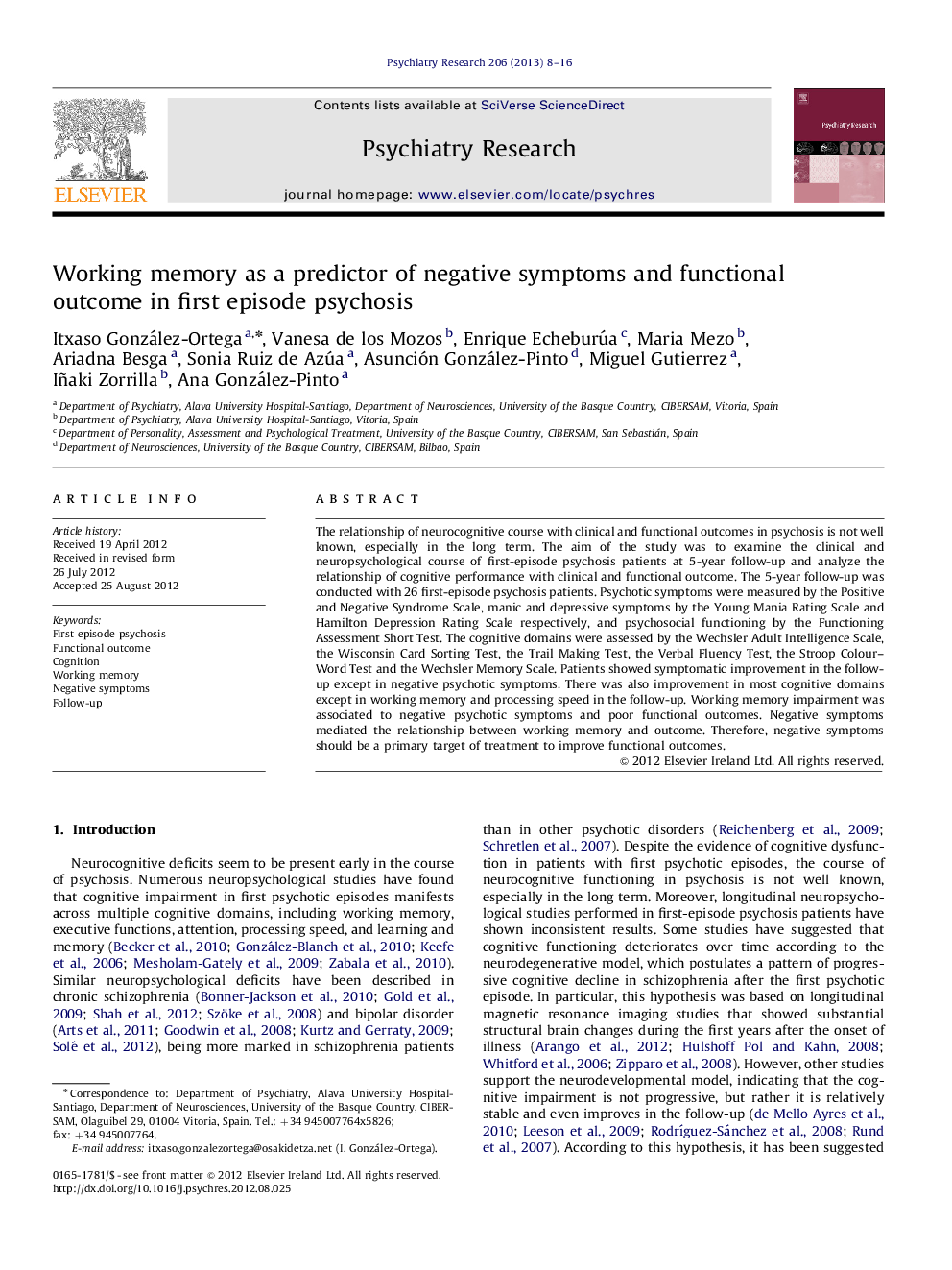| Article ID | Journal | Published Year | Pages | File Type |
|---|---|---|---|---|
| 10304386 | Psychiatry Research | 2013 | 9 Pages |
Abstract
The relationship of neurocognitive course with clinical and functional outcomes in psychosis is not well known, especially in the long term. The aim of the study was to examine the clinical and neuropsychological course of first-episode psychosis patients at 5-year follow-up and analyze the relationship of cognitive performance with clinical and functional outcome. The 5-year follow-up was conducted with 26 first-episode psychosis patients. Psychotic symptoms were measured by the Positive and Negative Syndrome Scale, manic and depressive symptoms by the Young Mania Rating Scale and Hamilton Depression Rating Scale respectively, and psychosocial functioning by the Functioning Assessment Short Test. The cognitive domains were assessed by the Wechsler Adult Intelligence Scale, the Wisconsin Card Sorting Test, the Trail Making Test, the Verbal Fluency Test, the Stroop Colour-Word Test and the Wechsler Memory Scale. Patients showed symptomatic improvement in the follow-up except in negative psychotic symptoms. There was also improvement in most cognitive domains except in working memory and processing speed in the follow-up. Working memory impairment was associated to negative psychotic symptoms and poor functional outcomes. Negative symptoms mediated the relationship between working memory and outcome. Therefore, negative symptoms should be a primary target of treatment to improve functional outcomes.
Related Topics
Life Sciences
Neuroscience
Biological Psychiatry
Authors
Itxaso González-Ortega, Vanesa de los Mozos, Enrique Echeburúa, Maria Mezo, Ariadna Besga, Sonia Ruiz de Azúa, Asunción González-Pinto, Miguel Gutierrez, Iñaki Zorrilla, Ana González-Pinto,
